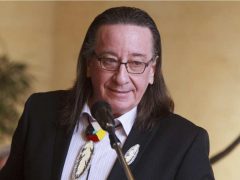
Gilbert Whiteduck: Algonquin from the Kitigan Zibi Anishinabeg First Nation, he was elected Chief of the Kitigan Zibi Anishinabeg community and served from June 2008 to April 2015. He had previously been elected to Band Council at different intervals, for a total period of 12 years over the past 4 decades. Mr. Whiteduck holds a B.S.W (Honours), a B.Ed, an M.Ed and an Honorary Doctorate which he received from the University of Ottawa in 1999. Mr. Whiteduck was involved in the field of First Nations education for over 33 years. He has held many positions during this period including that of guidance counsellor, teacher, school principal and director of education. He subsequently served for a period of 2 years as Senior Education Advisor with the First Nations Education Council which represents 22 First Nation communities in the Province of Quebec. Mr. Whiteduck has also served on numerous local, regional and national boards, committees and working groups. He also served as President of the First Nations Confederacy of Cultural Education Centers which represents some 87 First Nation cultural education centers across Canada. He is presently working as a Residential Counsellor in a First Nations treatment center. He was named in October 2015 by the Quebec Minister of Health to serve on the CISSS-O which is an integrated regional board that is responsible to oversee and direct all of the hospitals, old age homes and social services in the Outaouais area. Mr. Whiteduck remains active in his efforts to ensure that First Nation voices are not only heard but understood.
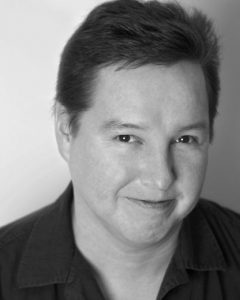 Don Kelly: Ojibwe from the Ojibways of Onigaming First Nation, Don Kelly now lives in Ottawa. He earned a Bachelor of Education with an English major. He is well known for his stand up comedy and as host and writer on the Canadian show “Fish out of Water” which airs on the Aboriginal Peoples Television Network and is syndicated on other networks in North America. He is the Communications Director for the Assembly of First Nations and has worked as a Writer-Broadcaster and Host for CBC National radio. One of his major contributions regarding Indigenous research ethics entails his work as the Senior Communications Officer and Writer for the Royal Commission on Aboriginal Peoples, having served as lead writer for Volume 4 of the RCAP Final Report called “Perspectives and Realities”.
Don Kelly: Ojibwe from the Ojibways of Onigaming First Nation, Don Kelly now lives in Ottawa. He earned a Bachelor of Education with an English major. He is well known for his stand up comedy and as host and writer on the Canadian show “Fish out of Water” which airs on the Aboriginal Peoples Television Network and is syndicated on other networks in North America. He is the Communications Director for the Assembly of First Nations and has worked as a Writer-Broadcaster and Host for CBC National radio. One of his major contributions regarding Indigenous research ethics entails his work as the Senior Communications Officer and Writer for the Royal Commission on Aboriginal Peoples, having served as lead writer for Volume 4 of the RCAP Final Report called “Perspectives and Realities”.
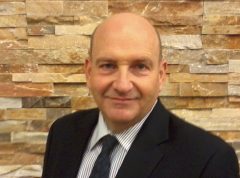 Gordon DuVal: Mr. DuVal is an academic lawyer with 18 years experience in health law, bioethics and research ethics. He has been a researcher and teacher of medical and research ethics at the US National Institutes of Health, the University of Toronto, the University of Chicago, American University (Washington DC). He is currently Chair of the National Research Council of the Canada Research Ethics Board and a member of the Faculty of Law at the University of Ottawa.
Gordon DuVal: Mr. DuVal is an academic lawyer with 18 years experience in health law, bioethics and research ethics. He has been a researcher and teacher of medical and research ethics at the US National Institutes of Health, the University of Toronto, the University of Chicago, American University (Washington DC). He is currently Chair of the National Research Council of the Canada Research Ethics Board and a member of the Faculty of Law at the University of Ottawa.
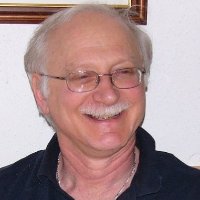 Allan Moscovitch: Professor Emeritus at Carleton University, he was a member of faculty until the end of 2015. He has focused his research and teaching on social policy and the Canadian welfare state. He is the author and editor of several books and many articles on the history of social welfare and on contemporary social policy issues.
Allan Moscovitch: Professor Emeritus at Carleton University, he was a member of faculty until the end of 2015. He has focused his research and teaching on social policy and the Canadian welfare state. He is the author and editor of several books and many articles on the history of social welfare and on contemporary social policy issues.
His most recent work on national social service financing (with Ginette Thomas) was published by the Canadian Association of Social Workers. During his career he has been a teacher, researcher, community activist, government administrator and government advisor.
During 1988-89 he was Director of Planning for the Social Services Department of the Regional Municipality of Ottawa Carleton. From 1990 to 1992 he was the Chair of the (Ontario) Minister’s Advisory Committee on Social Assistance Reform to the Minister of Community and Social Services where he worked with four ministers during his period as advisor on social assistance reform. During 1994-95 he completed (with Andrew Webster) a monograph on social assistance and Aboriginal Peoples for the Royal Commission on Aboriginal Peoples and co-authored the chapter on welfare in the final report. From 1994 to 1999 he was the director of the School of Social Work, Carleton University. While Director, he served as the Chair of the Ontario Deans and Directors of Schools of Social Work where he led their efforts to bring about new provincial social work legislation.
He has been active on many community boards locally and nationally. He has served on committees of the United Way and on the Social Planning Council’s committees and Board. More recently, from 2001- 2003 he was President of Jewish Family Services of Ottawa. He was the founding chair of the Allocations Committee of the Jewish Federation of Ottawa (2003 -2008) and a member of the Board of Directors. He was the founding Chair of the Association of Jewish Family and Child Agencies of Canada and a member of the North American Executive Committee (2004 – 07). More recently he has sat on the board of the Council on Aging of Ottawa and of the Ottawa Community Concert Band where he served most recently as President from 2013-15. He has been the Chair of the Friends of the University of Hargeisa, School of Social Work for the past 10 years.
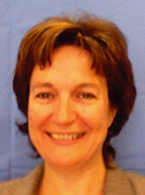 Genevieve Dubois-Flynn: Genevieve has a degree in law and received her PhD in Philosophy from Laval University in Quebec. She is currently the CIHR advisor on Indigenous Research Ethics. She believes in building linkages as she works as a member of the CIHR Steering Committee of the Pathways to Health Equity for Aboriginal People Initiative: she sees her role as examining how Indigenous ways of knowing and mainstream practices related to ethics can be effectively included in the Initiative. She was also closely involved in the development, promotion, evaluation and implementation of the CIHR Guidelines for Health Research Involving Aboriginal Peoples. Genevieve’s former presentations include “Respecting Aboriginal communities in Health Research” which she gave to the Law Faculty of the University of Copenhaguen, February 2016. In addition she presented “Vers une recherche plus éthique avec les Autochtones”, IIIèmes Rencontres internationales francophones de bioéthique, 2011. One of her other roles includes being a current member of the board of directors of the Canadian Society for International Health. Additionally she was a member of the expert policy group of the Canadian Coalition for Global Health Research that developed ethics guidance to guide global health research (2015) She was also a member of the University of Ottawa Research Ethics Board for Health and Health Sciences (2002-2008); and Vice-Chair of the HealthBridge Research Ethics Board (2008-2011).
Genevieve Dubois-Flynn: Genevieve has a degree in law and received her PhD in Philosophy from Laval University in Quebec. She is currently the CIHR advisor on Indigenous Research Ethics. She believes in building linkages as she works as a member of the CIHR Steering Committee of the Pathways to Health Equity for Aboriginal People Initiative: she sees her role as examining how Indigenous ways of knowing and mainstream practices related to ethics can be effectively included in the Initiative. She was also closely involved in the development, promotion, evaluation and implementation of the CIHR Guidelines for Health Research Involving Aboriginal Peoples. Genevieve’s former presentations include “Respecting Aboriginal communities in Health Research” which she gave to the Law Faculty of the University of Copenhaguen, February 2016. In addition she presented “Vers une recherche plus éthique avec les Autochtones”, IIIèmes Rencontres internationales francophones de bioéthique, 2011. One of her other roles includes being a current member of the board of directors of the Canadian Society for International Health. Additionally she was a member of the expert policy group of the Canadian Coalition for Global Health Research that developed ethics guidance to guide global health research (2015) She was also a member of the University of Ottawa Research Ethics Board for Health and Health Sciences (2002-2008); and Vice-Chair of the HealthBridge Research Ethics Board (2008-2011).
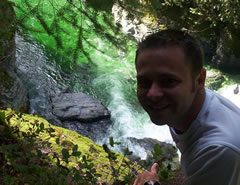 Steven Cooke: Dr. Steven Cooke is a Canada Research Chair in Environmental Science and Biology at Carleton University. His research is focused on the ecology, management, and conservation of inland and marine fish and fisheries. His specific research interests span fundamental understanding of animal biology through to understanding how knowledge is perceived and used by indigenous peoples and resource managers. His current research program spans much of North America along with active research projects in Brazil, India, Denmark, Norway, and The Bahamas.
Steven Cooke: Dr. Steven Cooke is a Canada Research Chair in Environmental Science and Biology at Carleton University. His research is focused on the ecology, management, and conservation of inland and marine fish and fisheries. His specific research interests span fundamental understanding of animal biology through to understanding how knowledge is perceived and used by indigenous peoples and resource managers. His current research program spans much of North America along with active research projects in Brazil, India, Denmark, Norway, and The Bahamas.
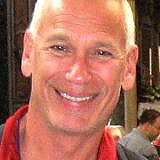 Alex M. Otsehtokon McComber: Alex is Kanien’kehá:ka (Mohawk) of the bear clan from Kahnawake Territory near Montreal, Quebec, Canada. He was born and raised in Brooklyn, New York, son of a retired ironworker, married with three children of the wolf clan and eight grandchildren.
Alex M. Otsehtokon McComber: Alex is Kanien’kehá:ka (Mohawk) of the bear clan from Kahnawake Territory near Montreal, Quebec, Canada. He was born and raised in Brooklyn, New York, son of a retired ironworker, married with three children of the wolf clan and eight grandchildren.
Alex holds an honorary Doctor of Science from Queens University (2015), a Master’s in Education Administration from McGill University (1996) a BA in Secondary Teacher Training from Saint Francis College, New York, and a Certificate in Indigenous Community Health Approaches from First Nations Technical Institute and St. Lawrence College (2008).
Alex has worked with the Kahnawake Schools Diabetes Prevention Project (KSDPP) from 1994 to 2006 as intervention facilitator, director and training coordinator; currently he is a KSDPP Community Advisory Board member, community researcher, and training facilitator delivering workshops on community mobilization, personal empowerment, health promotion, and Indigenous education. Alex was also a teacher and principal at the Kahnawake Survival School from 1978-1994.
Alex is a faculty member with First Nations Technical Institute, a strategic planning facilitator and is co-investigator on several health promotion research projects.
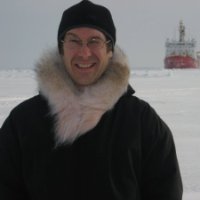 Scot Nickels: Mr. Nickels began working for the Inuit Tapiriit Kanatami (ITK) in 1998 as Director of the Environment Department. In 2006, he became ITK’s Senior Science Advisor, responsible for advising the executive and staff on research and science related issues. In 2010 he expanded his science advising role to become Director of Inuit Qaujisarvingat, the research centre at ITK. Scot received his PhD in 2000, from the Department of Geography at McGill University. He has authored several peer-reviewed articles and has given numerous national and international presentations. Scot has many years of experience working with Inuit Regions and communities.
Scot Nickels: Mr. Nickels began working for the Inuit Tapiriit Kanatami (ITK) in 1998 as Director of the Environment Department. In 2006, he became ITK’s Senior Science Advisor, responsible for advising the executive and staff on research and science related issues. In 2010 he expanded his science advising role to become Director of Inuit Qaujisarvingat, the research centre at ITK. Scot received his PhD in 2000, from the Department of Geography at McGill University. He has authored several peer-reviewed articles and has given numerous national and international presentations. Scot has many years of experience working with Inuit Regions and communities.
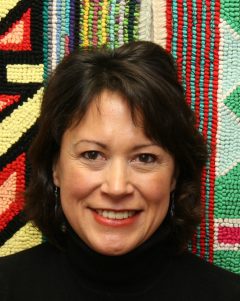 Margaret Kovach: (Sakewew pîsim iskwew) is of Plains Cree and Saulteaux ancestry and a member of Pasqua First Nation located in southern Saskatchewan. She is currently an Associate Professor at the College of Education, University of Saskatchewan. She received her PhD from the University of Victoria in 2007. Dr. Kovach’s work focuses on Indigenous research methodologies and Indigenous post-secondary education. Dr. Kovach’s publications have had a significant impact in her field. Of note, her book Indigenous Methodologies: Characteristics, Conversations, and Contexts, published through the University of Toronto Press, won the Scholarly Writing Award, Saskatchewan Book Awards. It has been widely used as a research text locally, nationally, and internationally. She has co-authored a SSHRC funded report Indigenous Presence: Experiencing and Envisioning Indigenous Knowledges within Selected Post-secondary Sites of Education and Social Work (2015) with a western Canadian team of researchers. Most recently she was the planning co-chair of the 2015 University of Saskatchewan hosted National forum “Building Reconciliation: Universities answering the TRC’s calls to action”.
Margaret Kovach: (Sakewew pîsim iskwew) is of Plains Cree and Saulteaux ancestry and a member of Pasqua First Nation located in southern Saskatchewan. She is currently an Associate Professor at the College of Education, University of Saskatchewan. She received her PhD from the University of Victoria in 2007. Dr. Kovach’s work focuses on Indigenous research methodologies and Indigenous post-secondary education. Dr. Kovach’s publications have had a significant impact in her field. Of note, her book Indigenous Methodologies: Characteristics, Conversations, and Contexts, published through the University of Toronto Press, won the Scholarly Writing Award, Saskatchewan Book Awards. It has been widely used as a research text locally, nationally, and internationally. She has co-authored a SSHRC funded report Indigenous Presence: Experiencing and Envisioning Indigenous Knowledges within Selected Post-secondary Sites of Education and Social Work (2015) with a western Canadian team of researchers. Most recently she was the planning co-chair of the 2015 University of Saskatchewan hosted National forum “Building Reconciliation: Universities answering the TRC’s calls to action”.
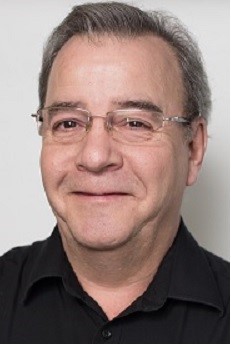 Jerry Lanouette: Sr. Manager Strategic Initiatives & Information Governance, The First Nations Information Governance Centre, is a member of the Mitchikanibikok Inik (Algonquins of Barriere Lake) First Nation and has worked for the past 4 plus decades within the federal public service and the First Nations’ public service in senior positions. He has dealt with primarily First Nations portfolios and issues. The better part of his federal public career was mostly in the areas of health, Royal Commission on Aboriginal Peoples, managing the Membership and Entitlement (Bill C-31) and advising senior officials in issues related to First Nations. He`s also advised, developed and implemented programs for First Nations wellness.
Jerry Lanouette: Sr. Manager Strategic Initiatives & Information Governance, The First Nations Information Governance Centre, is a member of the Mitchikanibikok Inik (Algonquins of Barriere Lake) First Nation and has worked for the past 4 plus decades within the federal public service and the First Nations’ public service in senior positions. He has dealt with primarily First Nations portfolios and issues. The better part of his federal public career was mostly in the areas of health, Royal Commission on Aboriginal Peoples, managing the Membership and Entitlement (Bill C-31) and advising senior officials in issues related to First Nations. He`s also advised, developed and implemented programs for First Nations wellness.
Jerry is well versed on issues surrounding the legacy of Indian Residential Schools, homelessness, mental health and youth issues. His mother Jean (Dolly) Manatch was a survivor of the Spanish Girls’ School, tuberculosis sanatorium and a victim of electroshock therapy. His brother Perry passed away homeless on the streets of Ottawa at the age of 32 and at the age of 39 his sister Roxanne, a victim herself of mental health issues that ultimately lead to her suicide.
Jerry continues to volunteer in both on-reserve and urban organizations that support First nations. His understanding “Those Who Do Not Learn from History Are Bound to Repeat It” leads to his passion of helping provide tools and skills on “Good Governance”. He’s also appeared several times as a witness to Canada’s Senate Standing Senate Committee on Aboriginal Peoples proceedings.
Jerry’s wife Wendy, and their two children, Joseph and Danielle are members of the Cape Croker Indian (Neyaashiinigmiing) Reserve, located on Georgian Bay. Meegwetch!
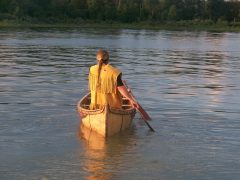 Marcel Labelle: Marcel Labelle is a proud Algonquin and Metis husband, father and grandfather. He grew up in Mattawa, a small town in Northern Ontario and spent most of his childhood on the trap line. This is where he learned how to live with and from the forest. Marcel shares Anishinabae knowledge through birch bark canoe building. He is recognized as a senior artist by the Ontario Arts Council since 2008 and received OAC Aboriginal Arts Projects Grants every year since. Today he is an Aboriginal Awareness speaker, an author and offers special canoe building projects at Universities, Colleges and English and French School Boards in Northern and Southern Ontario. His work has received International recognition. Marcel teaches canoe building at Laurentian University’s School of Architecture in Sudbury. He and his wife Joanne have recently moved back home to live in a log cabin they built themselves where they plan to share for many years to come.
Marcel Labelle: Marcel Labelle is a proud Algonquin and Metis husband, father and grandfather. He grew up in Mattawa, a small town in Northern Ontario and spent most of his childhood on the trap line. This is where he learned how to live with and from the forest. Marcel shares Anishinabae knowledge through birch bark canoe building. He is recognized as a senior artist by the Ontario Arts Council since 2008 and received OAC Aboriginal Arts Projects Grants every year since. Today he is an Aboriginal Awareness speaker, an author and offers special canoe building projects at Universities, Colleges and English and French School Boards in Northern and Southern Ontario. His work has received International recognition. Marcel teaches canoe building at Laurentian University’s School of Architecture in Sudbury. He and his wife Joanne have recently moved back home to live in a log cabin they built themselves where they plan to share for many years to come.
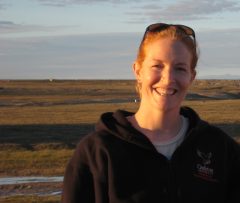 Gita Ljubicic: Associate Professor in Geography and Environmental Studies. Dr. Ljubicic has been working collaboratively with Inuit communities across Nunavut since 2001, learning from their expertise on various topics related to arctic marine and terrestrial environments. This involves ethical considerations in all stages of the research process, and thus she was keen to contribute as a member of the leadership team for the creation of the Carleton University Institute on the Ethics of Research with Indigenous Peoples. In presenting as a part of a panel on ethical considerations in northern research, she will share her experiences and perspectives on: navigating northern research licensing and ethical protocols, working in partnership to jointly identify and address local research priorities, varying perspectives on consent and liability, and, developing and maintaining relationships.
Gita Ljubicic: Associate Professor in Geography and Environmental Studies. Dr. Ljubicic has been working collaboratively with Inuit communities across Nunavut since 2001, learning from their expertise on various topics related to arctic marine and terrestrial environments. This involves ethical considerations in all stages of the research process, and thus she was keen to contribute as a member of the leadership team for the creation of the Carleton University Institute on the Ethics of Research with Indigenous Peoples. In presenting as a part of a panel on ethical considerations in northern research, she will share her experiences and perspectives on: navigating northern research licensing and ethical protocols, working in partnership to jointly identify and address local research priorities, varying perspectives on consent and liability, and, developing and maintaining relationships.